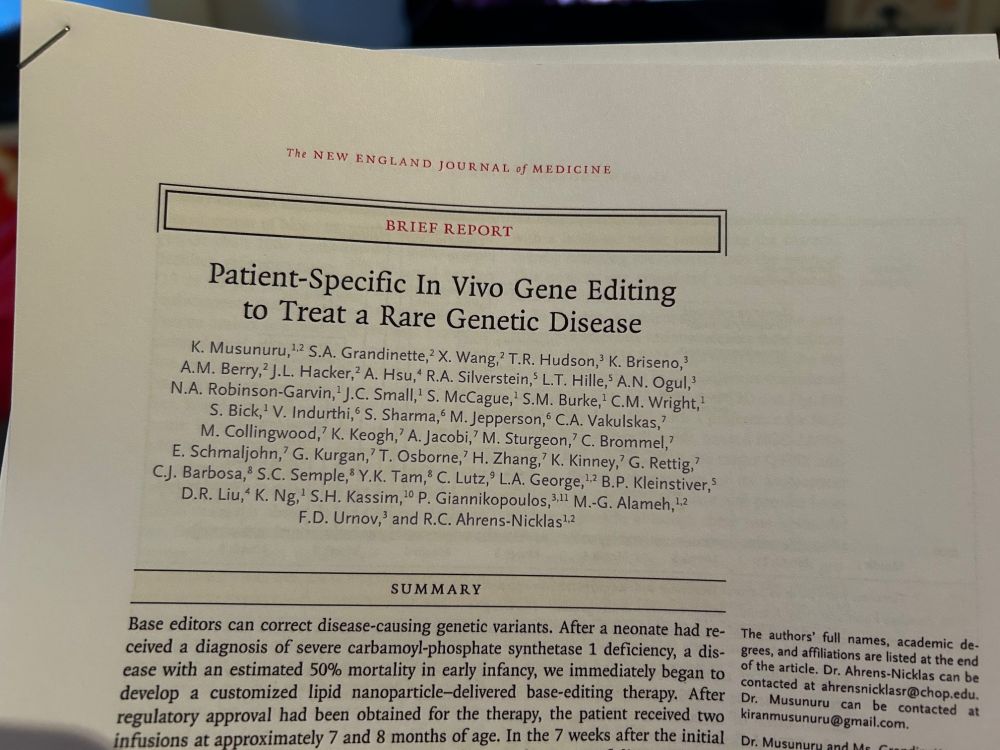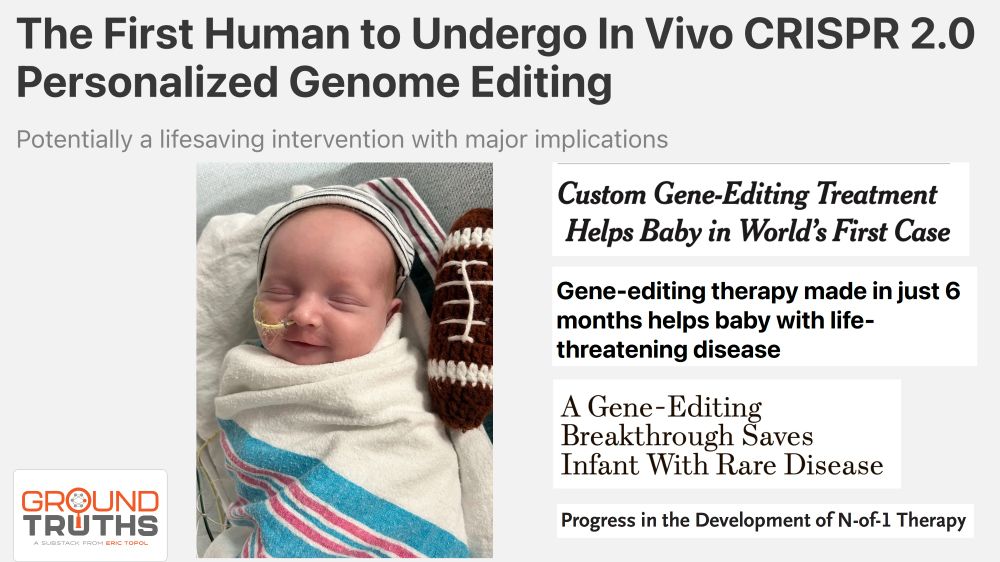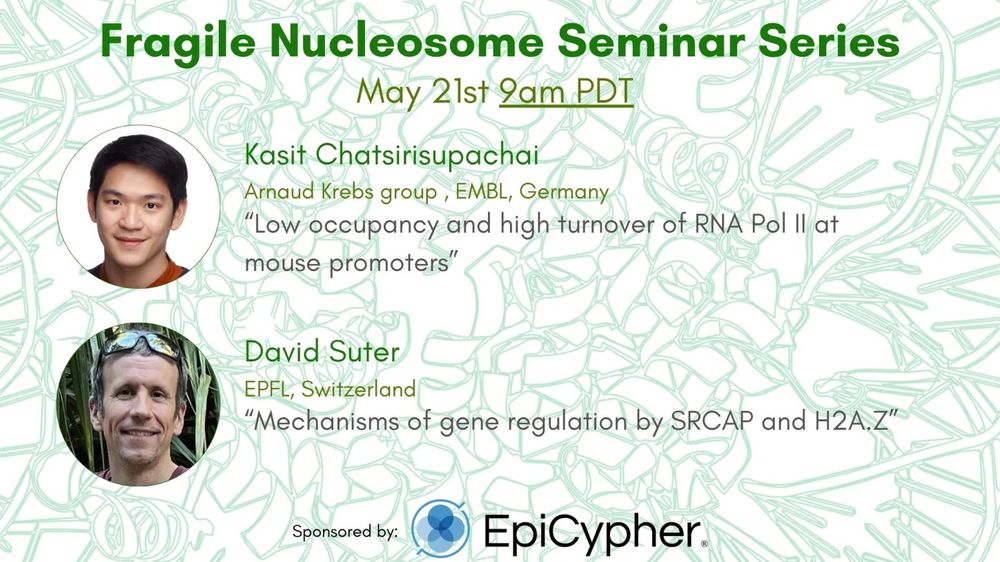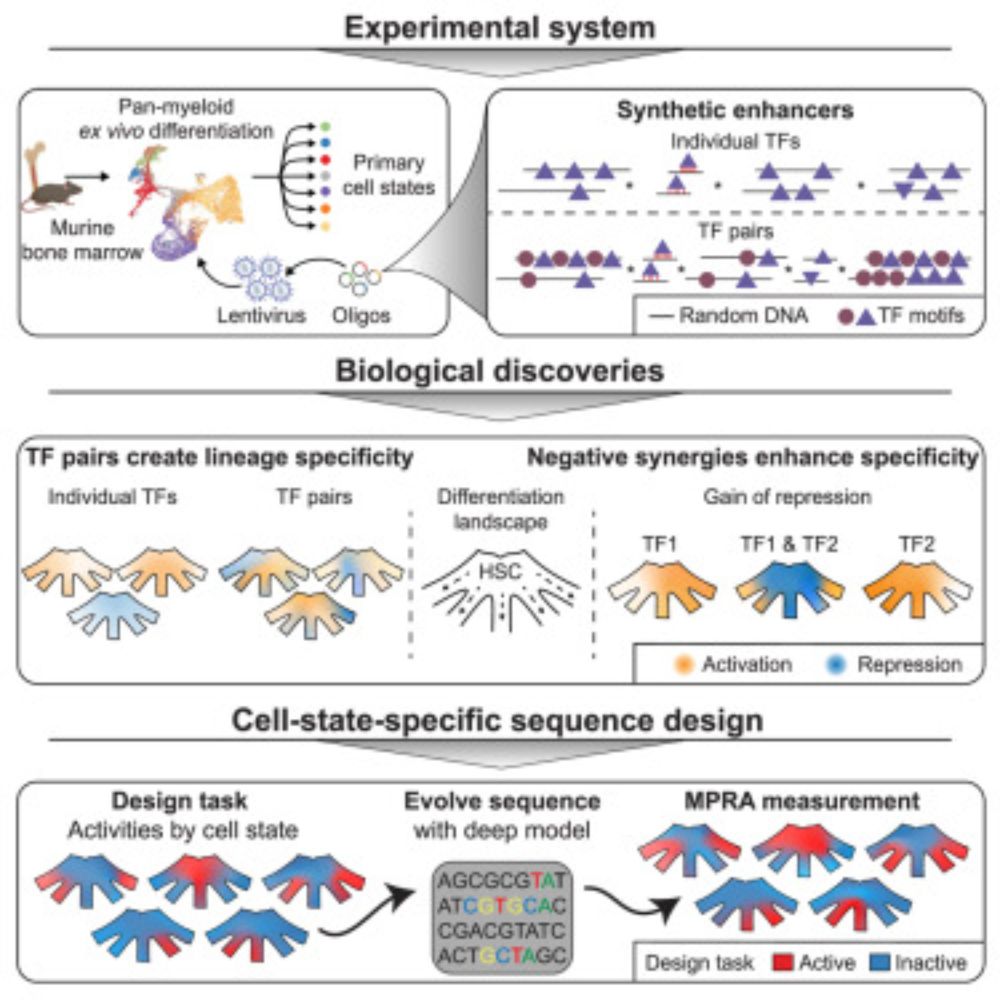www.biorxiv.org/content/10.6...
www.biorxiv.org/content/10.6...
www.linkedin.com/jobs/view/43...
www.linkedin.com/jobs/view/43...
TLDR; TFIID behaves differently depending on promoter type. More below:

www.biorxiv.org/content/10.6...

www.biorxiv.org/content/10.6...
- Once statistical power is high, constrained genes have more (though weaker) eQTLs.
- Chromatin-QTLs near constrained genes have "normal" effect sizes, colocalize more with disease, but exhibit attenuated peak-gene effects.

- Once statistical power is high, constrained genes have more (though weaker) eQTLs.
- Chromatin-QTLs near constrained genes have "normal" effect sizes, colocalize more with disease, but exhibit attenuated peak-gene effects.
Fill out this form to be considered for a talk in our Jan-June 2026 schedule! forms.gle/TBi38UgYxPAB...
Please repost and share!

Fill out this form to be considered for a talk in our Jan-June 2026 schedule! forms.gle/TBi38UgYxPAB...
Please repost and share!
www.biorxiv.org/content/10.1...

www.biorxiv.org/content/10.1...
cshlpress.com/default.tpl?...
#EpigeneticsBook
cshlpress.com/default.tpl?...
#EpigeneticsBook
We use long-read sequencing to detect de novo variants without having to sequence both parents. It's conceptually straightforward, and performs very accurately among variants likely to be clinically relevant.
www.medrxiv.org/content/10.1...

We use long-read sequencing to detect de novo variants without having to sequence both parents. It's conceptually straightforward, and performs very accurately among variants likely to be clinically relevant.
www.medrxiv.org/content/10.1...

arxiv.org/abs/2508.04111

arxiv.org/abs/2508.04111
Finalizing cover (looks great), probably going to printer this week.
Nervous anticipation is the mood right now.
Finalizing cover (looks great), probably going to printer this week.
Nervous anticipation is the mood right now.



“If I cover a preprint, I talk to 2-3 experts to get their views before writing the story.
That’s exactly what I do if I cover a journal article…”
Preprints are for communicating among scientists.
If a journalist wants to cover one, they should commission a peer review.
“If I cover a preprint, I talk to 2-3 experts to get their views before writing the story.
That’s exactly what I do if I cover a journal article…”
You can register at: us06web.zoom.us/webinar/regi...

🧬🩸 screen of fully synthetic enhancers in blood progenitors
🤖 AI that creates new cell state specific enhancers
🔍 negative synergies between TFs lead to specificity!
www.cell.com/cell/fulltex...
🧵

🧬🩸 screen of fully synthetic enhancers in blood progenitors
🤖 AI that creates new cell state specific enhancers
🔍 negative synergies between TFs lead to specificity!
www.cell.com/cell/fulltex...
🧵
Part of this means reviewers not ripping on manuscripts that explicitly mention limitations *for those limitations*
Part of this means reviewers not ripping on manuscripts that explicitly mention limitations *for those limitations*
onlinelibrary.wiley.com/doi/10.1111/...

onlinelibrary.wiley.com/doi/10.1111/...
www.sciencedirect.com/science/arti...

www.sciencedirect.com/science/arti...

